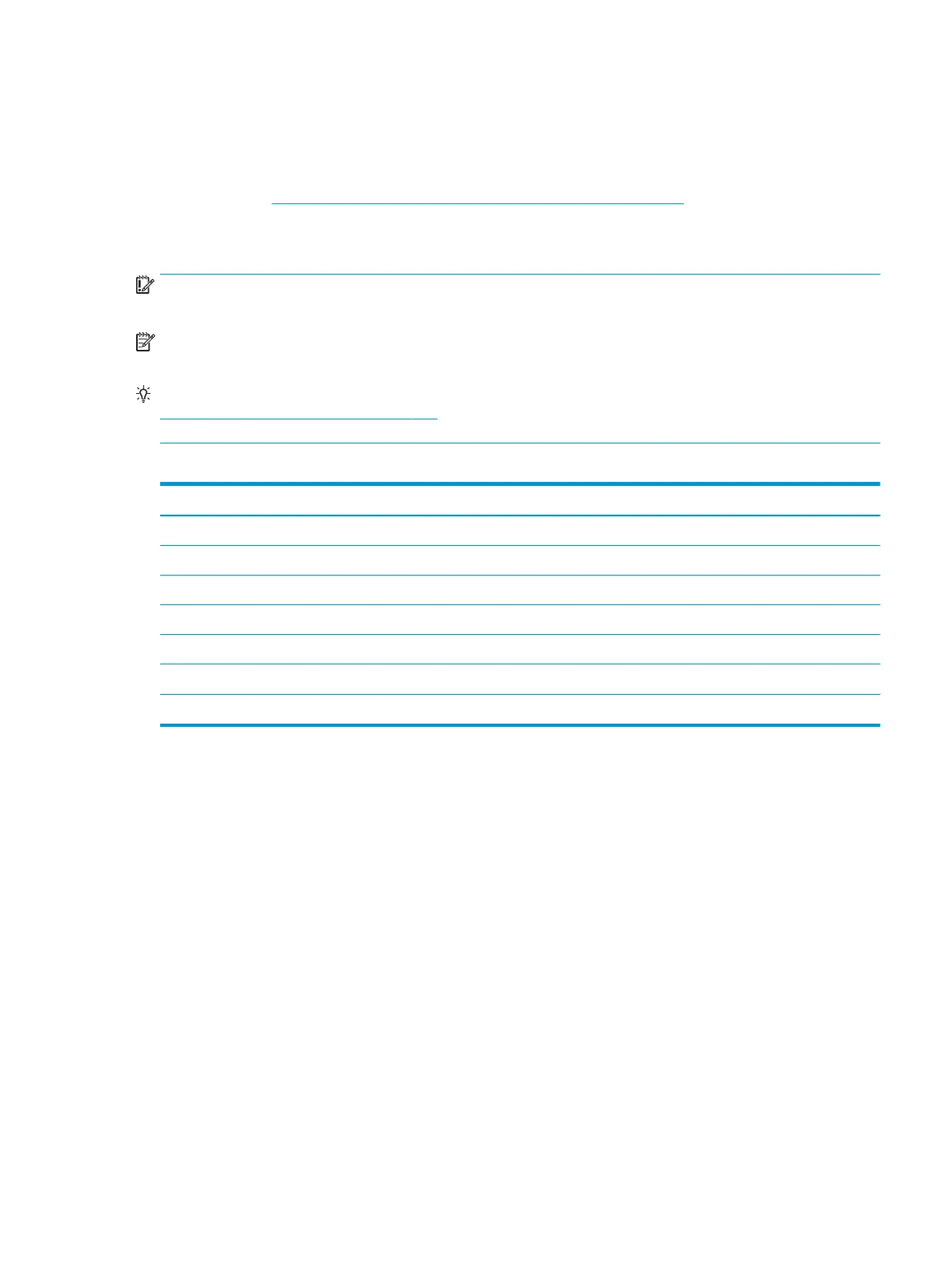Repetitive image defect ruler
When troubleshooting the source of some print image defects, one solution is to identify if it is a repetitive
defect (does the print quality defect appear multiple times on the printed page?). If this is the case, use a ruler
to measure occurrences of repetitive image defects to help solve image-quality problems. For more
information, see Use a ruler to measure between repetitive defects on page 394.
Place the ruler next to the rst occurrence of the defect on the page. Find the distance between identical
defects and use the table below to identify the component that is causing the defect.
IMPORTANT: Do not use solvents or oils to clean rollers. Instead, rub the roller with lint-free paper. If dirt is
diicult to remove, rub the roller with lint-free paper that has been dampened with water.
NOTE: Defects on the tray pickup rollers or the Tray 1 pickup roller do not cause a repetitive defect. Defects
on these rollers cause a defect to appear only on the leading edge of the image.
TIP: To make a printer specic repetitive defect ruler, use a metric ruler to transfer the measurements in
Table 2-51 Repetitive defects on page 393 to a transparency or the edge of a piece of paper—clearly label
each ruler mark with the associated defective assembly.
Table 2-51 Repetitive defects
Assembly Distance between defects
Primary charging roller
1
27 mm (1.06 in)
Developer roller
11
32 mm (1.26 in)
Registration roller 42 mm (1.65 in)
Secondary transfer roller 50 mm (1.97 in)
Fuser lm
2
58 mm (2.28 in)
Pressure roller
2
69 mm (2.83 in)
Photosensitive drum
1
75 mm (2.95 in)
1
The primary charging roller, photosensitive drum and developer roller cannot be cleaned. If any of these rollers are indicated, replace
the toner cartridge.
2
The primary fuser sleeve unit or pressure roller cannot be cleaned because they are internal assemblies in the fuser. If one of these
assemblies is causing the defect, replace the fuser.
ENWW Solve image-quality problems 393

